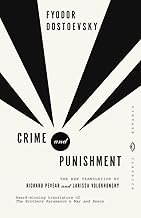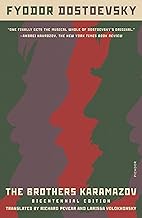
How to Read Fyodor Dostoevsky's Books on Psychology
How to Read Fyodor Dostoevsky's Books on Psychology
Estimated Reading Time: 10-12 minutes
Introduction
Fyodor Dostoevsky, a towering figure in world literature, is renowned for his profound exploration of the human psyche. Born in 1821 in Moscow, Dostoevsky's life was marked by personal turmoil, including poverty, imprisonment, and the loss of loved ones. These experiences deeply informed his writing, leading to a unique perspective on psychology that delves into the complexities of morality, guilt, and redemption.
Dostoevsky's works, particularly "Crime and Punishment" and "The Brothers Karamazov," offer a rich tapestry of psychological insights that remain relevant today. His exploration of existential themes and moral dilemmas provides a lens through which we can examine the human condition, making his contributions to psychology not just significant but essential.
In the context of 19th-century Russia, a time of political upheaval and philosophical questioning, Dostoevsky's works reflect the struggle of individuals grappling with their inner demons and societal expectations. His ability to intertwine philosophical discourse with narrative depth sets him apart from his contemporaries, making his insights invaluable for anyone interested in psychology.
Why Fyodor Dostoevsky's Perspective Matters
Dostoevsky's approach to psychology is distinctive due to its emphasis on the moral and existential dimensions of human behavior. Unlike many of his contemporaries who focused on external circumstances, Dostoevsky delved into the internal struggles of his characters, exploring themes of guilt, redemption, and the search for meaning. His works challenge readers to confront uncomfortable truths about themselves and society, making his insights timeless.
His psychological explorations predate and anticipate modern psychological theories, including those of Freud and Jung, who later acknowledged the influence of Dostoevsky's work on their own understanding of the human mind. The depth of his characters, often torn between conflicting desires and moral imperatives, provides a nuanced understanding of human motivation that continues to resonate in contemporary discussions of psychology.
Overview of Recommended Books
Crime and Punishment
"Crime and Punishment," published in 1866, is perhaps Dostoevsky's most famous novel and a cornerstone of psychological literature. The story follows Raskolnikov, a former student living in poverty in St. Petersburg, who commits murder under the belief that he is above conventional morality. The novel explores themes of guilt, redemption, and the psychological consequences of crime.
Main Themes and Arguments
At its core, "Crime and Punishment" examines the psychological turmoil experienced by Raskolnikov as he grapples with the moral implications of his actions. The novel poses critical questions about the nature of good and evil, the justifications for crime, and the possibility of redemption. Dostoevsky masterfully portrays the internal conflict of his protagonist, making the reader acutely aware of the psychological weight of guilt.
Historical Context and Significance
Set against the backdrop of a rapidly changing Russia, the novel reflects the tensions between traditional values and emerging modern ideologies. Dostoevsky's exploration of nihilism and existential despair resonates with the intellectual currents of his time, making "Crime and Punishment" a profound commentary on the human condition.
Key Insights and Takeaways
- The Burden of Guilt: Raskolnikov's psychological deterioration illustrates how guilt can manifest physically and mentally, leading to paranoia and despair.
- Moral Ambiguity: The novel challenges readers to consider the complexities of morality and the justifications individuals create for their actions.
- Redemption through Suffering: Dostoevsky suggests that true redemption can only be achieved through suffering and acceptance of one's moral failings.
Why Read This Book:
"Crime and Punishment" is essential for understanding the psychological complexities of guilt and morality. It appeals to readers interested in the darker aspects of human nature and those seeking to explore the motivations behind criminal behavior. This novel serves as a foundational text for anyone looking to understand the psychological underpinnings of ethical dilemmas.
The Brothers Karamazov
Published in 1880, "The Brothers Karamazov" is Dostoevsky's final novel and a profound exploration of faith, doubt, and the moral struggles of humanity. The story revolves around the Karamazov brothers—Dmitri, Ivan, and Alyosha—each representing different philosophical and ethical perspectives.
Main Themes and Arguments
The novel delves into the nature of free will, the existence of God, and the moral implications of human actions. Through the interactions of the Karamazov brothers, Dostoevsky examines the conflict between reason and faith, as well as the consequences of living without moral guidance.
Historical Context and Significance
"The Brothers Karamazov" emerged during a period of intense philosophical debate in Russia, where existentialism and atheism were gaining traction. Dostoevsky's exploration of these themes reflects his deep engagement with the spiritual and ethical crises of his time, making the novel a significant philosophical work.
Key Insights and Takeaways
- The Problem of Evil: The character of Ivan Karamazov articulates the existential crisis surrounding the existence of evil in a world governed by a benevolent God, prompting readers to confront their own beliefs about morality and justice.
- Faith and Doubt: Through Alyosha's unwavering faith, Dostoevsky illustrates the struggle between belief and skepticism, emphasizing that faith is often a choice made in the face of uncertainty.
- Moral Responsibility: The novel underscores the importance of personal responsibility and the impact of one's choices on others, encouraging readers to reflect on their ethical obligations.
Why Read This Book:
"The Brothers Karamazov" is a monumental work that addresses fundamental questions about existence, morality, and the nature of human relationships. It is particularly valuable for readers interested in the philosophical dimensions of psychology and those seeking a deeper understanding of faith and morality in a secular world.
How These Books Complement Each Other
While "Crime and Punishment" focuses on the psychological consequences of individual actions, "The Brothers Karamazov" expands the discussion to encompass broader philosophical questions about morality, faith, and the human condition. Together, these works provide a comprehensive understanding of Dostoevsky's exploration of psychology, illustrating the interplay between individual choices and collective ethical dilemmas.
Reading these novels in conjunction allows for a richer appreciation of Dostoevsky's insights into the complexities of human behavior. They collectively address the internal struggles faced by individuals and the societal implications of those struggles, offering a multifaceted view of psychology.
Who Would Benefit from Reading These Books
These works are ideal for a diverse audience:
- Students and Academics: Those studying psychology, philosophy, or literature will find valuable insights into human behavior and moral philosophy.
- General Readers Interested in Psychology: Readers seeking to understand the psychological dimensions of morality and ethics will benefit from Dostoevsky's explorations.
- Professionals Seeking Practical Wisdom: Psychologists, counselors, and educators can apply Dostoevsky's insights to their practice, enhancing their understanding of human motivations.
- Anyone Looking for Personal Growth: Readers interested in self-improvement and personal reflection will find profound lessons in these texts.
Recommended Reading Order
- Start with: Crime and Punishment - Begin with this novel to explore the psychological depths of guilt and moral conflict, laying the groundwork for understanding Dostoevsky's exploration of human behavior.
- Continue with: The Brothers Karamazov - Follow up with this work to engage with broader philosophical questions about faith, morality, and the human condition, enriching your understanding of the themes introduced in "Crime and Punishment."
- Advanced reading: The Possessed (Demons) - For those looking to delve deeper into Dostoevsky's exploration of psychological and political themes, this novel offers a critique of radical ideologies and their impact on society.
Tips for Getting the Most Out of Each Book:
- Take notes on key themes and character developments to enhance your understanding.
- Engage with secondary literature or discussions to gain different perspectives.
- Reflect on your own beliefs and experiences as you read, drawing connections to the characters' struggles.
Conclusion
Fyodor Dostoevsky's contributions to psychology are profound and enduring, offering a deep exploration of the human condition that remains relevant today. His works challenge readers to confront their own moral dilemmas and psychological struggles, providing insights that can lead to personal growth and understanding.
As you embark on your journey through these classic texts, allow yourself to be immersed in the complexities of human nature that Dostoevsky so masterfully portrays. Whether you are a newcomer or a seasoned reader, the exploration of these works will undoubtedly enrich your understanding of psychology and the timeless questions that define our existence.
Tags: #FyodorDostoevsky #Psychology #Philosophy #ReadingGuide #ClassicLiterature #Wisdom
Featured Books

Crime and Punishment
by Fyodor Dostoevsky
Published: 1866
Hailed by Washington Post Book World as “the best [translation] currently available" when it was first published, this second edition of Crime and Punishment has been updated in honor of the 200th anniversary of Dostoevsky’s birth. • ONE OF TIME MAGAZINE'S 100 BEST MYSTERY AND THRILLER BOOKS OF ALL TIMEWith the same suppleness, energy, and range of voices that won their translation of The Brothers Karamazov the PEN/Book-of-the-Month Club Prize, Richard Pevear and Larissa Volokhonsky offer a brilliant translation of Crime and Punishment, Dostoevsky's astounding pyschological thriller, newly revised for his bicentenniel. In Crime and Punishment, when Raskolnikov, an impoverished student living in the St. Petersburg of the tsars, commits an act of murder and theft, he sets into motion a story that is almost unequalled in world literature for its excruciating suspense, its atmospheric vividness, and its depth of characterization and vision. Dostoevsky’s drama of sin, guilt, and redemption transforms the sordid story of an old woman’s murder into the nineteenth century’s profoundest and most compelling philosophical novel. Read more

The Brothers Karamazov
by Fyodor Dostoevsky
Published: 1880
Winner of the Pen/Book-of-the-Month Club Translation PrizeThe award-winning translation of Fyodor Dostoevsky's classic novel of psychological realism.The Brothers Karamazov is a murder mystery, a courtroom drama, and an exploration of erotic rivalry in a series of triangular love affairs involving the “wicked and sentimental” Fyodor Pavlovich Karamazov and his three sons―the impulsive and sensual Dmitri; the coldly rational Ivan; and the healthy, red-cheeked young novice Alyosha. Through the gripping events of their story, Dostoevsky portrays the whole of Russian life, its social and spiritual striving, in what was both the golden age and a tragic turning point in Russian culture. This award-winning translation by Richard Pevear and Larissa Volokhonsky remains true to the verbal inventiveness of Dostoevsky’s prose, preserving the multiple voices, the humor, and the surprising modernity of the original. It is an achievement worthy of Dostoevsky’s last and greatest novel. Read more